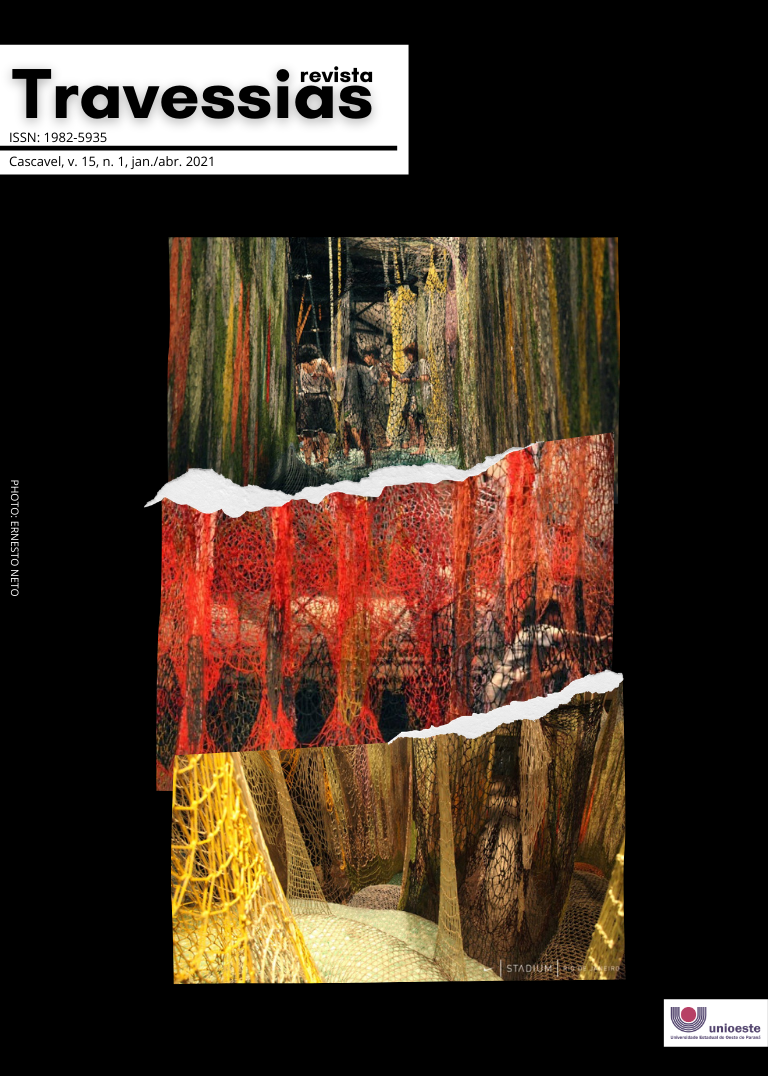The songs against oppression: Patativa do Assaré and the brazilian popular poetry
DOI:
https://doi.org/10.48075/rt.v15i1.26034Keywords:
Popular Poetry, Patativa do Assaré, Popular Culture, Cordel Literature.Abstract
Cordel Literature in the Northeast of Brazil has a significant notoriety because of the spontaneous theme, regional marks and political and social criticismo. Because of such peculiarities and relevance, the idea of this paper cames. This paper have the objetiv to contextualize such popular poetry, more specifically the poems of Antonio Gonçalves da Silva (Patativa do Assaré), with the political and social resistance and reexistence in Brazilian popular literature. For this, we read and studied some theorical approaches about popular culture (Cuche, 1999), poetry of Northeast of Brazil (Assaré, 1978), (Ribeiro, 1987) and the life and work of Patativa. For add such concepts and facts with politial resistance and social reexistence through the art, some reflections by authors were use to composse the discussion: Arantes (1982), Foucault (2011 and 2004) and Marcuse (1973). And in order to understant the poems of Patativa by the proposed of the article, a qualitative approach was used, through the analysis of the French discourse (Gregolin, 2008). Thus, through such reads, researchs and analyzes, it was possible to notice that art of Patativa resists and reexists socially, mainly, from theree aspects: language used, the life of Patativa and subjetcts dealt with in the poems.
Downloads
References
ASSARÉ, Patativa do. Cante lá que eu canto cá. Rio de Janeiro: Vozes, 1978.
ASSARÉ, Patativa, do; FEITOSA, L. Tadeu. Digo e não peço segredo. São Paulo: Escrituras, 2001.
ARANTES, Antonio Augusto. O trabalho e a fala: estudo antropológico sobre os folhetos de cordel. São Paulo: Editora Kairós, 1982.
CANTEL, Raymond M.; CLÉMENT, Jean-Pierre; LEMAIRE, Ria. La littérature populaire brésilienne. Centre de recherches latino-américaines, 1993.
CASCUDO, Luís da Câmara. Dicionário do folclore brasileiro. Rio de Janeiro: Ministério da educação e cultura, Inst. Nacional do livro, 1954.
CERTEAU, Michel. Cultura No Plural (a). São Paulo: Papirus Editora, 1995.
CUCHE, Denys; PEREIRA, Miguel Serras; GANDRA, Fernando. A noção de cultura nas ciências sociais. Lisboa: Fim de Século, 1999.
EVARISTO, Conceição. Da representação à auto-apresentação da Mulher Negra na Literatura Brasileira. Revista Palmares, v. 1, p. 52-57, 2005.
FOUCAULT, Michel. Ética, sexualidade, política. São Paulo: Forense Universitária, 2004.
FOUCAULT, Michel. A Coragem da Verdade. Tradução Eduardo Brandão. São Paulo: WMF Martins Fontes, 2011.
GREGOLIN, Maria. Análise do discurso e mídia: a (re) produção de identidades. Comunicação mídia e consumo, v. 4, n. 11, p. 11–25, 2008.
MARCUSE, Herbert. Contra revolução e revolta. Rio de Janeiro: Editora Zahar, 1973.
PIGNATARI, Décio. O que é comunicação poética. São Paulo: Ateliê Editorial, 2005.
PORTELA, Cláudio. Melhores poemas de Patativa do Assaré. Global Editora. São Paulo, 2006.
RIBEIRO, Lêda Tâmega. Mito e poesia popular. Rio de Janeiro: FUNARTE, Instituto Nacional do Folclore, 1987.
SOARES, Daniel Lins. Cultura e subjetividade: saberes nômades. São Paulo: Papirus, 1997.
VASQUEZ, Pedro Afonso. O universo do cordel. Recife: Instituto Cultural Banco Real, 2008.
Downloads
Published
How to Cite
Issue
Section
License
Creative Copyright Notice
Policy for Free Access Journals
Authors who publish in this journal agree to the following terms:
1. Authors keep the copyright and grant the journal the right of first publication, with the work simultaneously licensed under the Creative Commons Attribution License, which allows sharing the trial with acknowledgment of authorship and initial publication in this journal.
2. Authors are authorized to take additional contracts separately, for non-exclusive distribution of the work version, published in this journal (eg publish in institutional repository or as a book chapter), with acknowledgment of authorship and initial publication in this journal.
3. Authors are allowed and encouraged to publish and distribute their work online (eg in institutional repositories or on their personal page) at any point before or during the editorial process, as this can generate productive changes, as well as increase both impact and citation of the published trial (See The Effect of Free Access).
Creative Commons License
This work is licensed under a Creative Commons Attribution–NonCommercial-shareaswell 4.0 International License, which allows you to share, copy, distribute, display, reproduce, completely or part of the work, since there is no commercial purpose, and authors and source are cited.



